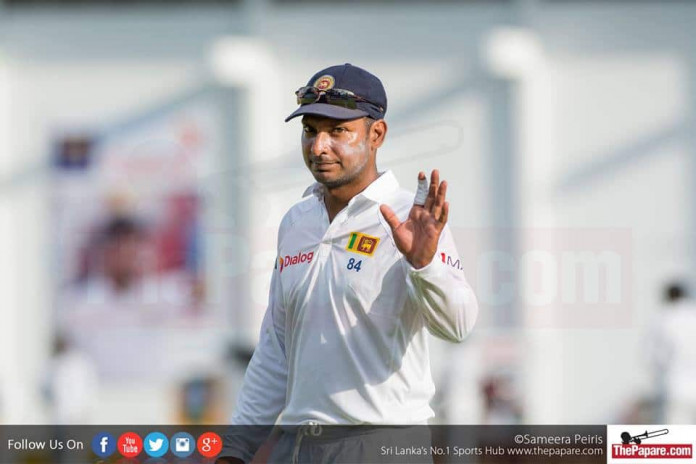Former great Kumar Sangakkara is urging administrators and cricket clubs to agree to rearrange the domestic cricket structure if Sri Lanka were to be ranked amongst the top three cricket nations in the world.
Sangakkara is of the opinion that the current system doesn’t develop top First Class cricketers who can straight excel in Test cricket.
Experts believe that Sri Lanka’s domestic structure has too many clubs at present killing the competitive nature of First Class cricket. A provincial cricket tournament comprising five teams had addressed the issue somewhat with highly competitive games. However, the current SLC administration in order to woe the votes from clubs promised to scrap the provincial tournament and lived up to their words once assuming office.
“One of the main problems of our cricket is that we don’t have a trusted First Class system anymore. I remember in the old days when I started playing First Class cricket was hugely competitive. The grounds were packed with people. You had some great competitors. Arjuna Ranatunga and a host of national team players were at SSC while Roshan Mahanama and Sanath Jayasuriya were at Bloomfield. The SSC- Bloomfield rivalry was legendary those days. They will kill each other on the field. They were motivated by being the best,” Sangakkara said.
In the late 1990s, several new clubs especially from outstations, were introduced to First Class cricket. While administrators argued that it helped spread the game out of Colombo, in reality they were only increasing their vote base as little top class talent emerged from those bases.
“The more clubs were added it all thinned out the competition. If you take some of the successful cricketing nations, why they have been successful is because of their First Class cricket. We have to change.”
In order to reduce the clubs in First Class cricket, on several occasions administrations have tried to relegate teams that end bottom of the points table. However, those clubs try underhand tactics and seek politicians’ help to remain in the top league sighting step motherly treatment to underprivileged clubs. Politicians fail to understand that all clubs had agreed and signed terms and conditions prior to the start of the competition and go onto veto SLC’s decisions allowing clubs with grievances remain in the top level.
It’s not just with smaller clubs, even Sangakkara’s beloved NCC is not above board. A few yars ago NCC got relegated from the top division and some NCC stalwarts through manipulation and maneuvering ensured that the club remained in the top division. NCC once renowned for fair play and honesty could have set an example, but failed miserably. Sangakkara even at that point distanced himself from the club’s stance earning the wrath of club’s hierarchy.
Another argument that is put forward by club veterans is that the current club structure helped Sri Lanka win a World Cup. “We can’t say that Club cricket produced the World Cup winning side and they are going to do it in future. No. You have to understand that you have to change,” Sangakkara said.
“You have to do it now. If not, then administrators are failing in their duty to the players who are playing First Class cricket. If we are not giving them the environment, the right facility and the right format where they learn the game and they become professional, we can’t expect them to be competitive at First Class cricket. That’s the question people who formalize these structures need to ask themselves. What do we need to do make these cricketers the best in the world,” Sangakkara added.
“We have to change this structure no matter what the consequences to the people who change it in terms of votes or whatever. The clubs themselves should ask the question are we only going to think about ourselves or are we going to be part of the process that’s going to produce quality international players. You have to look at the larger picture. One of the reasons why in Pakistan and Sri Lanka you find that young players come in and go out of international cricket is because we don’t have a good First Class structure,” Sangakkara stressed.
“You will get players like Kusal Mendis coming in with no First Class runs whatsoever or someone like Udara Jayasurndara who went to New Zealand with the ‘A’ side and scored truck load of runs. Then you have someone like Dananjaya Silva and Roshane Silva who has an average of over 50 in First Class cricket. The point is we don’t want to doubt any player who has scored runs in First Class competition and then worry about the quality of our competitions. If someone is averaging over 50 in First Class cricket, there can’t be a question whether the competition is good enough. It makeseverything easy for selectors, administrations, teams and players. I can’t understand why we are not changing it.”























